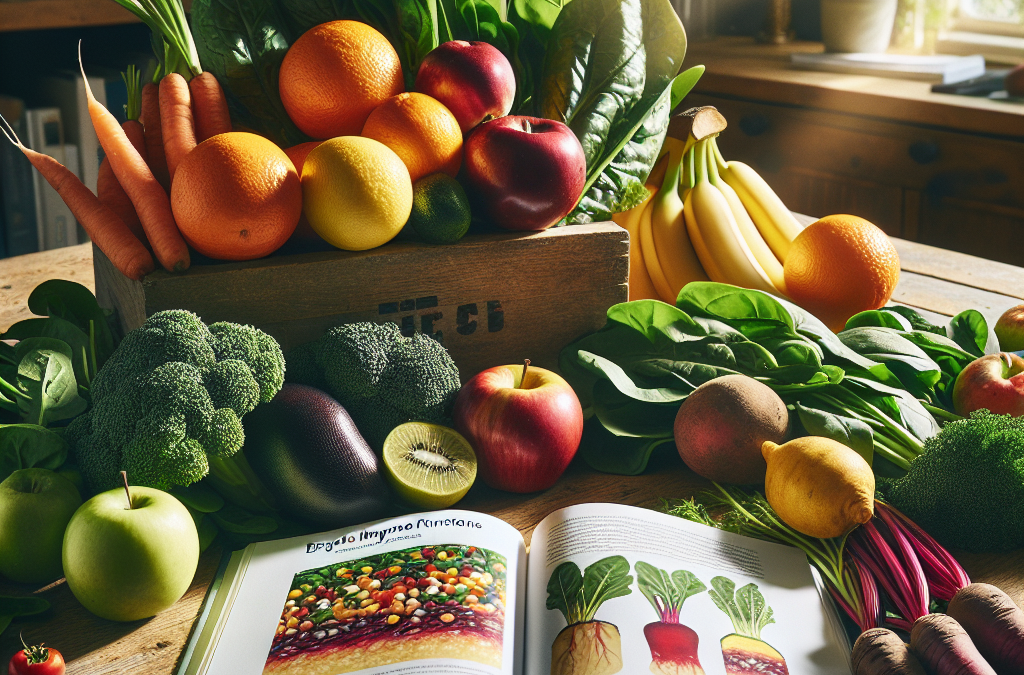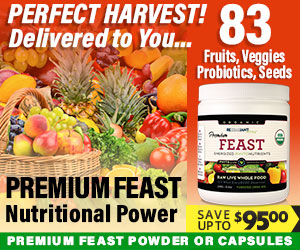Understanding Enzymes in Our Body
What Are Enzymes?
Let’s kick things off by diving into what enzymes actually are. Enzymes are proteins that act as catalysts in the body. Sounds fancy, right? But really, they help speed up chemical reactions, which are crucial for everything from digesting your breakfast to fighting off illnesses. Without enzymes, our bodies would basically come to a screeching halt.
I remember when I first learned about enzymes, I was blown away. I had no idea they were behind so many functions in our bodies! It’s like they’re these little workers tirelessly helping us feel our best, all while we go about our day.
There are thousands of different enzymes, each with a specific job. Whether breaking down food or helping to synthesize important molecules, they are essential for maintaining our health and energy levels.
Role of Enzymes in Digestion
Alright, let’s get into how these enzymes come into play when we eat. When you chow down on some food, enzymes kick into action to break it all down into smaller, usable parts. Think of them like little chefs preparing a feast for your cells!
Different types of enzymes break down proteins, fats, and carbohydrates. For example, proteases tackle proteins, lipases handle fats, and amylases focus on carbohydrates. Knowing this helps me appreciate my meals a bit more – enzymes are the true unsung heroes behind the scenes!
If you’ve ever felt bloated after a heavy meal, it’s often because your body struggled to produce enough enzymes to assist with digestion. Eating raw foods can boost your enzyme levels, as raw fruits and vegetables often contain their own naturally occurring enzymes.
How Enzymes Affect Nutrient Absorption
Now, let’s touch on nutrient absorption. It’s one thing to eat healthy food, but if your body isn’t effectively absorbing nutrients, what’s the point? This is where enzymes really shine. They help break down food into simpler compounds so your body can absorb the nutrients efficiently.
I’ve noticed that on days when I eat more raw foods, I feel more energetic. It’s likely due to the fact that my body is better absorbing the nutrients from those foods, thanks to the help of enzymes!
So, the next time you enjoy a fresh salad or a smoothie, remember that the enzymes present in those raw ingredients are working hard to ensure your body gets what it needs.
The Benefits of Raw Foods
Higher Nutritional Value
One of the standout benefits of raw foods is that they tend to maintain a higher nutritional value. Cooking can sometimes diminish key vitamins and minerals, while raw foods typically showcase their full flavor and nutrient profile.
Take, for example, fresh leafy greens. When we eat them raw, we benefit from all those vitamins that might get lost during cooking. I’ve made it a point to include more raw veggies in my meals, and it’s a game-changer!
And let’s be real, the crunch and freshness of raw foods can be so satisfying. Tossing a mango or some cucumbers into my meals not only boosts the nutrition but also brings a delightful burst of flavor to my plate.
Enhanced Digestive Health
Eating raw foods can also support better digestive health. Many raw fruits and vegetables are packed with fiber, which helps keep things moving smoothly in the gut. I can’t tell you how many times I’ve felt lighter after a day filled with fresh produce!
Also, the enzymes in raw foods can assist with digestion, reducing bloating and discomfort. It’s beneficial to have that extra support, especially after a big meal. I’ve found that trading out cooked meals for more raw options can make a significant difference in how I feel.
Moreover, raw foods can promote a healthy gut microbiome, which is crucial for overall health. Including more raw foods in our diets is a simple but effective way to keep our digestion on point.
Improved Hydration
Another underrated benefit of raw foods is hydration. Many raw fruits and veggies are naturally high in water content, which can be an easy way to boost your hydration levels without even thinking about it.
I’ve often noticed that when I eat more watermelon or cucumbers, my hydration feels on fleek. Plus, they’re seriously refreshing, especially during hot summer days!
Staying hydrated is no joke. It helps with everything from energy levels to skin health. By incorporating raw foods, I can enjoy a little hydration boost while also nourishing my body.
Combining Raw Foods with Cooking
The Perfect Balance
While I’m a huge fan of raw foods, I’ve learned that balance is key. Not every food needs to be eaten raw, and in fact, some foods release more nutrients when cooked. It’s all about finding that sweet spot.
For example, tomatoes and carrots can be more beneficial when cooked, as cooking can enhance the bioavailability of certain antioxidants. I like to mix it up in my kitchen – one day I’m tossing a fresh salad, and the next I’m steaming some veggies.
This approach not only keeps my meals interesting but ensures I’m getting a wide array of nutrients. It’s about having a variety in my diet that supports my overall health.
Get Certified Organic Whole Food Nutrition – Nutrient Dense Supplement
Maximizing Nutritional Benefits
Combining raw and cooked foods can also amplify the nutritional benefits. For instance, when I prepare a stir-fry, I often add some raw greens at the end, letting them wilt slightly but still retain their crunch and nutrients.
This method is super beneficial because it allows me to enjoy the flavors of cooked veggies while also getting the raw nutrients from greens. Trust me, it’s a winning combination!
So don’t shy away from mixing the two. Your body will appreciate the variety, and you’ll get the best of both worlds!
Experimenting with Flavor Profiles
Let’s not forget about the fun factor of exploring different flavors! Combining raw and cooked foods can lead to amazing flavor profiles in your dishes. I’ve gotten creative by adding raw herbs or sprouts to my cooked meals for an exciting flavor twist.
Different textures add to the visual appeal and take your meals to the next level. That crunch from raw ingredients paired with soft, cooked ones can make every bite enjoyable!
Plus, it keeps things exciting in the kitchen! If you feel like you’ve hit a wall in your cooking routine, try mixing raw and cooked ingredients. You might just surprise yourself!
Incorporating Enzyme-Rich Foods
Fruits and Vegetables
Alright, let’s talk about foods rich in enzymes. Fruits like pineapples and papayas are loaded with enzymes like bromelain and papain, which are fabulous for digestion. I love adding these fruits to my smoothies, not only for their taste but for that extra enzyme boost.
Vegetables like cabbage and carrots also pack a punch when it comes to enzymes. They add crunch and flavor, and I’m all about finding ways to sneak them into my meals.
I often challenge myself to create dishes that highlight enzyme-rich fruits and veggies. It’s both delicious and a smart choice for my health!
Nuts and Seeds
Nuts and seeds are not only a source of healthy fats but also come with their own set of enzymes. Soaking nuts and seeds can further activate these enzymes, enhancing their digestibility.
I love adding soaked nuts to my salads or making nut milk at home. It not only boosts the nutrients but also lends a distinct flavor that’s hard to beat.
By incorporating these little gems into my diet, I’re making a conscious effort to support my digestive health with every bite. It’s a win-win for flavor and health!
Fermented Foods
Don’t even get me started on fermented foods! Things like kimchi, sauerkraut, and yogurt are not only delicious but also packed with living enzymes. They’re a fantastic addition to any meal!
I’ve found that adding a spoonful of sauerkraut to my sandwiches or salads elevates the whole dish. It’s a game-changer, especially for digestion.
Plus, they can be super fun to make at home! I’m no expert, but experimenting with fermenting my own veggies has turned into a great kitchen adventure. And who doesn’t love a little project while making their food more nutritious?
Conclusion
In conclusion, understanding the relationship between organic raw foods and enzyme function has truly transformed how I approach my meals. By focusing on a balanced diet rich in raw foods, I’m not only enhancing my digestion but also keeping my energy levels high. The journey towards eating more raw can be liberating and full of flavor, and I invite you all to join in. Let’s celebrate our food’s natural goodness!
FAQs
1. What are enzymes and what do they do?
Enzymes are proteins in your body that act as catalysts to speed up chemical reactions. They’re crucial for processes like digestion and nutrient absorption.
2. How do raw foods benefit our health?
Raw foods maintain higher nutritional value, enhance digestive health, and improve hydration. They’re packed with essential vitamins and minerals!
3. Can I cook all my vegetables?
No, not all vegetables need to be cooked. Some retain or enhance nutrients better when raw, while others may offer more benefits when cooked.
4. What are some good enzyme-rich foods?
Fruits like pineapple and papaya, as well as fermented foods like kimchi and yogurt, are excellent sources of enzymes that help with digestion.
5. How can I incorporate more raw foods into my diet?
You can start by adding more salads, smoothies, and raw snacks like nuts and seeds. Gradually replace some cooked meals with raw options to find what works best for you.




